![]()
MEANING: to diligently apply oneself
IN CONTEXT: Nick failed his first two subjects at university so he knew it was time to knuckle down and study hard.
Knuckle down has its origins in the game of marbles. A marble, also known as a “taw,” is held with a crooked index finger and flicked by the thumb. It is an essential rule of the game that the knuckle of the index finger must be placed down on the ground before taking a shot. The knuckle must also be placed in the exact position that the player’s previous marble ended. A player breaking these rules will be quickly told to concentrate and knuckle down.
You Can Run, but You Can’t Hide
![]()
MEANING: you can try to escape but will eventually be caught
IN CONTEXT: Hector owed the government $10,000. He knew he’d have to pay it soon as he could run but he couldn’t hide.
You can run, but you can’t hide is an expression attributed to the great heavyweight boxer Joe Louis, known as the “Brown Bomber.” In 1941, Louis fought Billy Conn, a much lighter and faster boxer. Behind on the scorecard, Louis eventually knocked Conn out in the 13th round. Still champion, in 1946 Louis fought a rematch with Conn. Remembering how close Louis had come to losing his belt in the first bout, boxing writers asked Louis how he would combat Conn’s fast “hit and run” strategy. Joe Louis responded, “He can run, but he can’t hide.” The champion won the fight by knockout in the 8th round.
![]()
MEANING: to beat easily; to outdo completely
IN CONTEXT: Our team knocked the spots off the opposition and won by thirty points.
Knock the spots off is an expression that began in America in the mid-1800s. Carnivals were commonplace all over the country at the time and the most popular sideshow was the shooting gallery. All comers would test their marksmanship skills. The most used target was a playing card, the face of which had spots or marks on it to indicate the suit or value of the card. The object was to shoot through all the spots and remove as many as possible. Anyone who could knock all the spots off a card would win a prize.
![]()
MEANING: win easily with very little effort
IN CONTEXT: We were up by twenty points at halftime and we ended up winning hands down.
Win hands down also originated with the sport of horse racing. A jockey needs to keep a tight rein on his horse to encourage it to run, but when a jockey is so far ahead of the competition that he can loosen the rein and still win without needing his whip, he can place both hands back on the reins and rest them down comfortably. He can then canter to the finish line and win hands down. The saying was used in the literal sense from the mid-19th century and it developed into the figurative sense in the early 20th century.
![]()
MEANING: legal; honest and open
IN CONTEXT: The real estate agent had a bad reputation for shady dealings, but I found him to be completely above board.
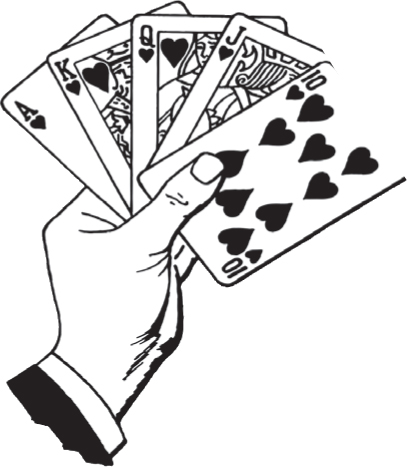
Above board is a gaming expression. In card playing, a board is an antiquated word for a table, as in sideboard. If a player drops his hands below the table, he could be accused of trying to cheat by swapping his cards. To avoid any such suspicion, it is essential for players to keep their hands above the table at all times where the other players can see them. If all players are above board, nobody can suggest any wrongdoing.
![]()
MEANING: excited and silly behavior when people are enjoying themselves
IN CONTEXT: Bert had been drinking and was singing and dancing and getting up to all sorts of high jinks.
High jinks was originally the name of a drinking game that was popular in Scotland in the 1700s. In the game, dice were thrown and the players were scored. The loser could either forfeit or drink a potent cocktail of alcohol, which was likely to make him inebriated and foolish. Walter Scott referred to the game in his 1815 book Guy Mannering, and the phrase had acquired its present meaning by the mid-1800s.
Add Another String to Your Bow
![]()
MEANING: to add more than one skill or opportunity
IN CONTEXT: He had more than one string to his bow, so when his football career ended early, he was able to fall back on his legal practice.
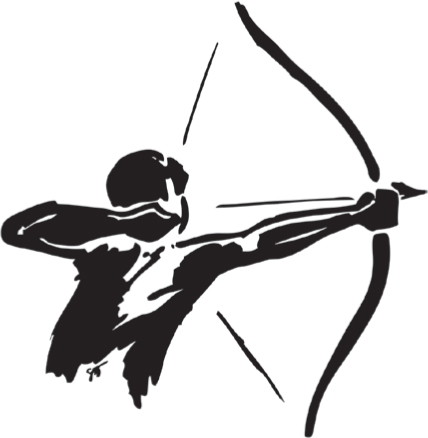
Add another string to your bow owes its origins to medieval times and the sport of archery. Many men were armed with a bow and arrows, which was an essential weapon used in hunting and in defense. In addition, competitions often sprung up between men as to who was the best shot (which is how the sport of archery came into existence). So as to never be caught short, prudent archers were advised to add another string to their bow. This second string was attached at the top of the bow and wound around the handle. If their first string snapped or was damaged, the archer had a backup string to get him out of trouble. This is how the expression second string came into being, as well.
![]()
MEANING: a fruitless chase for something; a hopeless quest
IN CONTEXT: All the police knew was that the suspect had dark hair so they were definitely on a wild goose chase.
Wild goose chase has its origins in horse racing. The sport developed in England in the 16th century, and its earliest form was much different from what we see today. A race began with a lead horse being set off, the rider taking any direction he chose. The other riders were then sent off in pursuit, leaving at precise regular intervals. The pursuing competitors did not know exactly what route the lead rider had taken, so they all set off in different directions like wild geese trying to follow their leader. William Shakespeare popularized the expression in his 1597 play Romeo and Juliet.
![]()
MEANING: to go all out, willing to do anything to achieve a goal
IN CONTEXT: Two ambulances passed me on the highway weaving in and out of traffic and going hell bent for leather.
Hell bent for leather relates to horse riding. The word “bent” means to be determined, as in “bent on doing something.” To ride a horse aggressively for long distances can push it beyond its capabilities and cause it injury or death. With either result, the horse is rendered useless and is destined to be skinned for leather. Someone who pushed a horse to those extremes would be said to be hell bent on turning it into leather. Others say that the constant whipping or spurring of a horse would be hell for the horse’s skin, which would later be made into leather, or that riding hard would be hell for the saddle leather.
Wear Your Heart on Your Sleeve
![]()
MEANING: show all your feelings and emotions
IN CONTEXT: The coach always wore his heart on his sleeve and was very animated during the final match.
Wear your heart on your sleeve derives from medieval jousting matches. When a king’s court held a jousting match, it was customary for the competing knights to dedicate their performance to the woman they were courting. To show that he was representing his sweetheart, a knight would wear the colors of the lady he was supporting in cloths or ribbons tied to his arm—he would symbolically wear his heart on his sleeve. The phrase was popularized by Shakespeare in his 1604 play Othello when he wrote, “I will wear my heart upon my sleeve.”
![]()
MEANING: to create a difficulty or cause an upset
IN CONTEXT: I told John what Paul had said about him, which really upset the apple cart.
Upset the apple cart has unlikely origins that lie with the sport of wrestling. During the 18th century, the “apple cart” was a slang term in wrestling circles for a man’s upper body. To upset the apple cart was to throw an opponent down, which put him in a difficult position and often prevented him from winning. The expression was first recorded by Jeremy Belknap in 1788 in his The History of New Hampshire.
Have the Bit between Your Teeth
![]()
MEANING: take control of a situation
IN CONTEXT: I had procrastinated over the assignment for days when I finally got the bit between my teeth and finished it in one night.
Have the bit between your teeth is another phrase that comes from horse racing. Bit is derived from the Old English word meaning “bite,” and is the mouthpiece in a horse’s bridle that is used to control the horse’s movements. When a horse is being ridden normally, the reins press the bit against the soft part of the horse’s mouth, causing it to turn its head. However, if the horse grabs it so that the bit is between its teeth, it takes control away from the rider and the reins have no effect. It is then free to run how it chooses. The expression was being used by the late 1600s.
![]()
MEANING: to help or incite someone, usually in the commission of a crime
IN CONTEXT: Holly was reprimanded for aiding and abetting the boys who were fighting.
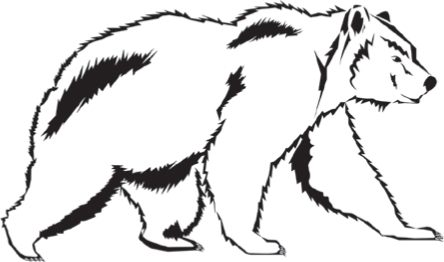
Aid and abet has its origins from the now-outlawed spectacle of bear baiting. The word “abet” derives from the Norse word beita, meaning “to bite.” Originally called “bear abetting” in 14th-century England, a hungry bear would be tethered to a pole in a pit and set upon by trained bulldogs. The dogs would bite the bear until it was killed, but in so doing would often suffer casualties or fatigue. If one of his dogs was tired, the owner would often urge it to continue. It was said that he was abetting the dog to keep biting. After adding the common word aid, the phrase “to aid and abet” was coined by the late 18th century.
![]()
MEANING: an unfair or underhanded tactic
IN CONTEXT: Bill had been told the information in confidence, so to bring it up during the argument was a bit below the belt.
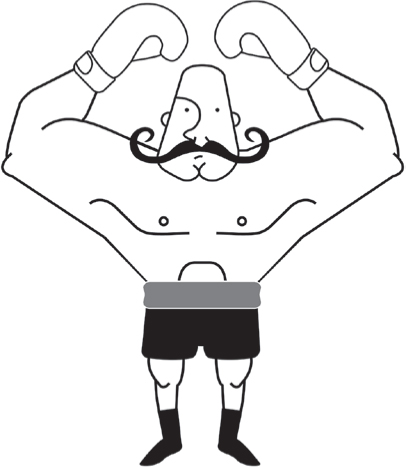
Below the belt originated with the sport of boxing. The London Prize Ring Rules were drafted in 1743 by a boxer named Jack Broughton. These included not hitting a man when he was down, nor hitting any part below the waist. These rules were then updated and replaced by the Marquess of Queensberry in 1867 into a formal code to put an end to dangerous fighting techniques. One of the rules was that no boxer must ever aim a blow at an opponent “below the level of his trouser belt.” Below the belt soon came to be used figuratively to mean any unfair tactic.
![]()
MEANING: someone or something expected to achieve great success
IN CONTEXT: The new medical research center was the great white hope in cancer treatment.
Great white hope has its origins in the sporting arena, in particular boxing. It also has racial connotations. Jack Johnson became the first African American world heavyweight boxing champion when he beat the Canadian Tommy Burns in a bout that took place in Sydney, Australia, in 1908. Racial animosity among white boxing fans was so intense that they called out for another white boxer to take back the title. To answer the call, James Jeffries, a white American boxer, came out of retirement to fight Johnson. Jeffries was billed as the Great White Hope, but he, too, was beaten by Johnson in 1910, triggering violent racial riots across the country.
![]()
MEANING: to raise the cost or risk of an activity
IN CONTEXT: By doubling the police force in the city, the government was really upping the ante for would-be criminals.
Up the ante sprung up from the card game of poker. Ante is a Latin word meaning before or in front. At the start of a hand before any cards are dealt, players must place a bet called the ante; that is, the up-front bet. As the hand progresses and cards are received, players can increase their bet, which is usually only done if a player has a good hand or is bluffing. Increasing the bet is known as raising the stakes or upping the ante. The expression has been used since the 1800s.
![]()
MEANING: to decline an invitation, but leave the option to take it up another time
IN CONTEXT: I can’t go with you to the cinema on Saturday, but can I take a rain check and go next week?
Take a rain check derives from baseball in America. In the late 1870s, the attendance at baseball games during the wet winter months was low. Baseball had always been the great American pastime, but the fans did not want to shell out the full price of a ticket if there was a risk that the game would be washed out or reduced because of rain. To combat this, the game’s administrators began the practice of allowing fans to leave because of bad weather up to a certain point in a match, and then reuse their ticket on another day. This way the fans did not forfeit the fare and got to watch an entire game. It was known as taking a rain check, and the concept was formalized in 1890 in the constitution of the National League.
![]()
MEANING: obtain a dominant position or control of a situation
IN CONTEXT: Oliver was trying to stay calm, but his anger got the upper hand and he finally exploded.
Upper hand is a saying that began with a simple 15th-century game. It involved a staff or stick, and two or more contestants. The first person held the staff at the bottom and the next person placed their hand directly above. This happened in turn until the top end of the shaft was reached. The last person to place their hand on the end of the shaft was said to have the upper hand and was the winner. This practice was adopted in the 19th century on American playgrounds to determine which side would bat first in impromptu baseball games.
Don’t Look a Gift Horse in the Mouth
![]()
MEANING: don’t be critical or ungrateful for a gift
IN CONTEXT: The TV was free so I didn’t question where it came from, as I didn’t want to look a gift horse in the mouth.
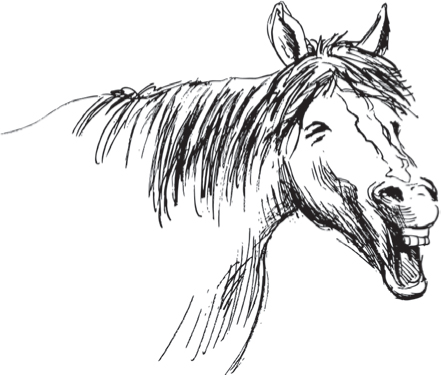
Don’t look a gift horse in the mouth derives from racehorses and horses generally. Horses were always considered valuable, but there were very few ways of assessing a horse’s age before purchase. It was a risk to buy a racehorse that was past its prime or a work horse that was old. The most reliable way of determining a horse’s age is from its teeth—as a horse ages its teeth wear down, but they also protrude forward and its gums recede. If a horse was given to you it was rude to look that gift horse in the mouth, because this suggested you were assessing its value. This is also the derivation of the expression straight from the horse’s mouth to describe firsthand information, as well as long in the tooth, another equine teeth-related phrase meaning that someone is old.
![]()
MEANING: to annoy or anger a person
IN CONTEXT: The tap kept dripping all night and by the end it really got my goat.
Get someone’s goat is another expression with bizarre origins. It relates to horse racing in America in the early 20th century. It was common for hyperactive horses to be given goats as stablemates because, for some unknown reason, goats had a calming effect on horses. This was particularly important at racetracks, where horses were stabled in unfamiliar surroundings. Horses often became attached to their goats, and on race days, unscrupulous punters or opposing owners would sometimes steal the goats. This would make the horse agitated and likely to perform poorly in the race.
![]()
MEANING: until the last possible moment
IN CONTEXT: I made it to the airport gate just as it was shutting. It really came down to the wire.
The expression down to the wire has its origins with horse racing. Before camera technology existed to determine the winner of a close-run race, a string was stretched across the finish line to assist the judges to see who crossed the line first. The string was called a wire, and whoever broke it first was the winner. An evenly run race was said to go down to the wire. Also used in foot races, the phrase was being used literally through the late 1800s and figuratively by the early 1900s.
![]()
MEANING: continue to do something; encouragement to have someone continue a task
IN CONTEXT: He got all As in his mid-term exams and the teacher told him to keep it up for the rest of the year.
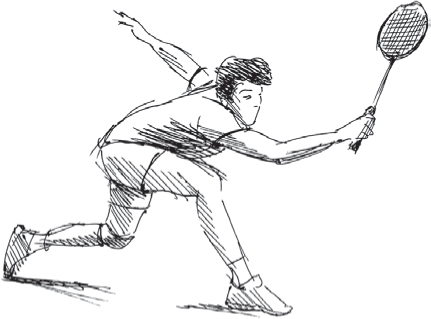
Keep it up dates from the 1700s and the game of badminton. The idea of the game is to hit a small piece of rubber attached with feathers, known as a shuttlecock, over a high net using small tennis-style racquets. The shuttlecock must not hit the ground at any time and if it does, the point is lost. Spectators at badminton events would often shout out to keep it up during the rallies.
![]()
MEANING: start again from the beginning, regardless of any prior work done
IN CONTEXT: My computer crashed and I lost my assignment, so I had to start from scratch.
Start from scratch originated from the sport of horse racing in the Middle Ages. At that time, a line was marked, or scratched, in the ground by a sword. The jockeys began the race behind the mark, and if it was found that any of them weren’t following the course that was set out, they would be required to go back and start again from scratch. This progressed into foot races with handicaps, where weaker competitors were given head starts of varying degrees, while a contestant who started from a scratch in the ground was given no advantage. The expression developed into today’s figurative sense, which was then adopted in golf as “swing from scratch.”
![]()
MEANING: at top speed; with maximum energy
IN CONTEXT: I was late for the bus and had to run at full tilt to catch it.
Full tilt originated with the medieval sport of jousting. Tilt derives from the Old English word “tealt,” meaning unsteady or leaning. In England, tilting was the early name for jousting. It involved two knights on horseback charging at each other at high speed in an attempt to topple an opponent off his horse by aiming a lance at him. This is also where the phrase “tilting at windmills” comes from in Cervantes’ 1605 book Don Quixote.
![]()
MEANING: to reverse a situation and gain the upper hand
IN CONTEXT: Our team was behind until near the end of the game, when we turned the tables and won.
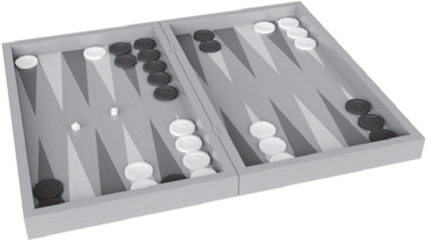
Turn the tables has its origins in the game of backgammon. In the 17th century, the game was known in England as tables; the two halves of the playing board are still called tables today. At the time, there was a rule that allowed the players to turn the tables. This involved reversing the board so that the players would continue from their opponent’s previous position. The first figurative use of the expression was in Robert Sanderson’s XII Sermons in 1634 when he said “Whosoever thou art that dost another wrong, do but turn the tables: imagine thy neighbor were now playing thy game, and thou his.”
![]()
MEANING: an impasse, allowing no progress
IN CONTEXT: My job is a dead end with no chance of promotion.
While dead end might logically relate to a passage that has no exit as being “dead,” it actually began with lawn bowls, a sport that has been played in England for centuries. In bowling, an end is one stage of a game when all players have bowled toward the “jack,” which is the small white target ball. If the jack is driven out of the rink (the playing area) by one of the player’s balls, the end cannot be continued and must be replayed. It is considered a dead end.
![]()
MEANING: a closely cropped male haircut
IN CONTEXT: He wanted to stay cooler for the summer so he got a crew cut.
Despite many associating crew cut with the military, where the style is common, it actually originated with the sport of rowing. In the 1940s, university rowers at Yale and Harvard began wearing their hair cropped very short on the back and sides with a slightly longer, brush-like top. The style was soon adopted by other sportsmen at the universities, but it was the rowing crews who set the trend.
![]()
MEANING: wealthy
IN CONTEXT: The cost of housing in the best part of town was out of reach to all but the well heeled.
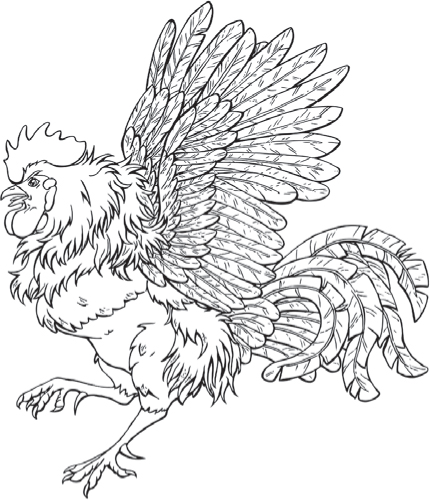
The origins of well heeled lie in the sport of cockfighting. When the sport began, birds that were equipped with long and strong spurs were known as well heeled, the “heel” relating to the position of the spur on the back of the cock’s foot. The cocks use their spurs to kill their opponents, so a well-heeled cock is a dangerous bird. The first known reference to the phrase was in 1866 in the Iowa newspaper the Dubuque Daily Herald, where “game cocks well heeled” were mentioned.
![]()
MEANING: shift blame or responsibility elsewhere
IN CONTEXT: It was his mistake and he should accept the blame. He’s always passing the buck.
Pass the buck originates from the game of poker. Poker became popular in America during the 18th century and players were always suspicious of any form of bias or cheating. To combat this, the card dealer was frequently rotated during a game. The person who was next in line to deal was given a marker, which was often a knife. The handles of most knives were made of buck’s horn, so the marker became known as a “buck.” When the dealer’s turn was complete he would pass the buck. Silver dollars were later used as markers, which is probably where the term buck originated to denote a dollar. The US president Harry S. Truman famously displayed a sign on his desk that read “the buck stops here” to indicate that he was willing to take responsibility for governing America.
![]()
MEANING: in a small and confined space
IN CONTEXT: Our new apartment was clean and well-lit, but it was so small you couldn’t swing a cat.
The origin of couldn’t swing a cat is often confused. Many believe it dates from the 17th century and relates to there not being enough room below a ship’s deck to swing a cat o’ nine tails whip, but it actually began two hundred years earlier from a bizarre form of sport. At some country festivals, live cats would be swung around by the tail and hurled into the air as targets for archers to hit. This was a popular spectacle, so if a festival was crowded it would be said that there wasn’t enough room to swing a cat.
![]()
MEANING: to dispose of deceptively; passing something unwanted to another person
IN CONTEXT: I didn’t feel like mowing the lawn so I pretended I was ill and palmed it off to my brother.
Palm off is an expression that originated with the world of card playing and involves cheating. In many card games, there is a dealer who deals cards to all the players, including himself. An adept dealer will know various tricks and may get a quick look at the card he is about to deal to himself. If it is a bad card that he doesn’t want, he may hide it in the palm of his hand, then deal himself the next card in the hope that it will be better. By sleight of hand, he will then palm off the unwanted card to another unwitting player.
![]()
MEANING: to tell directly; to refuse completely
IN CONTEXT: She locked herself in the bedroom and refused point blank to come out.
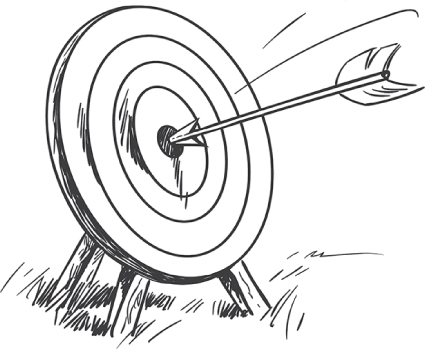
Point blank has sporting beginnings and originated in France. Point blanc is French for “white mark,” the bull’s-eye or center of an archery target. A shot from a distance has to be aimed above the target to allow it to drop with gravity, but a shot point blank is close enough so that the flight of the arrow hits the target directly without any arcing. The expression later widened to refer to anything done at very close range, especially gunfire.
![]()
MEANING: meet the standard
IN CONTEXT: I think we’ll have to let John go before his probation period is over. He just hasn’t come up to scratch.
Come up to scratch has its origins in the days of bare-knuckle boxing. Fights used to take place in a large circle drawn in the dirt, which is why it’s called a “boxing ring” today. Across the middle of the ring another line was drawn, or scratched, and the boxers faced off while standing on either side of it. If a boxer was knocked down, he was given a thirty-second count to come up to the scratch and present himself as fit and willing to continue the bout. If the boxer was unable to come up to scratch, the fight was over and he was the loser.
![]()
MEANING: to be left abandoned in an awkward or difficult situation
IN CONTEXT: My boss quit midway through the project and I was really left in the lurch.
The phrase left in the lurch has its origins with an old French board game called lourche. It was played with dice and was similar to backgammon. If a player was left in a position from which he couldn’t win, he suffered a lourche, which was a disadvantage. This concept was then brought into the card game of cribbage. In that game, if a player reaches 51 holes on the board before the other reaches 31, the trailing player is said to be left in the lurch. The phrase was being used figuratively as early as 1596, when it was included in “Have With You to Saffron-Walden,” a pamphlet written by Thomas Nashe.
![]()
MEANING: all encompassing; applying to all the individuals in a group
IN CONTEXT: The new government promised tax cuts across the board.
Across the board was coined in America in the early 1900s and first used figuratively soon afterward. The expression comes from the sport of horse racing. At race meetings at the time, a large board was used to display the odds of the horses in a race. The odds were listed on each horse to win (make first), place (make second), or show (make third). An across the board bet was when a punter placed an equal amount of money on a particular horse to finish first, second, or third.
![]()
MEANING: worn out or exhausted
IN CONTEXT: The old car looked completely clapped out and like it couldn’t drive another mile.
Clapped out has its origins in the cruel sport of hare coursing, which began in the 17th century and continues to this day. The sport consists of releasing a hare then having it pursued by a pair of greyhounds, who race each other to catch it. At times during its flight, the hare will periodically stop to catch its breath. When it does this, it usually sits up on its haunches and looks around. Being virtually exhausted, the hare breathes so heavily that its chest heaves in and out and its front legs move backwards and forwards at the same time. This gives the appearance that the hare is clapping, and that’s what it’s called in the sport. Once a hare is clapped out, the race will probably soon be over.
![]()
MEANING: futile; nothing happening; used as a refusal to a request
IN CONTEXT: When Dan asked me to lend him $100, I told him “no dice, I don’t have any money.”
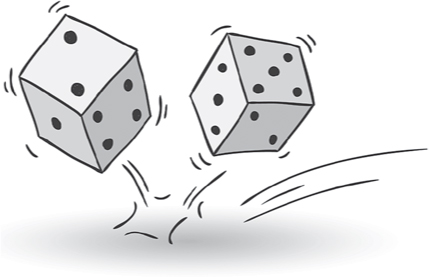
No dice began in America in the early 20th century. Gambling was illegal in many states at the time, so if a game was interrupted by a police raid, men went to great lengths to hide their dice when challenged. Courts would often throw out illegal gambling cases if no dice could be proffered as evidence—no dice meant no conviction. This led some gamblers to even swallow their dice to avoid arrest. The expression was being used colloquially by the 1920s.
![]()
MEANING: the best; the most distinguished
IN CONTEXT: Sue won the blue ribbon in the baking contest. Hers was by far the best.
Blue ribbon event derives from a combination of horse racing and politics. The highest award for merit in Great Britain is a knighthood, and the most distinguished order of knighthood is the Most Noble Order of the Garter. Recipients of this award wear a garter made of dark blue velvet ribbon. In 1846, an avid horse racing follower named George Bentinck sold all his racehorses to pursue a career in politics. In 1848 he was defeated in Parliament and only a few days later, one of the horses he had sold won the Epsom Derby, the most prestigious race in the country. Disconsolate, Bentinck was heard to lament his misfortune and referred to the Derby as “the blue ribbon of the turf.”
![]()
MEANING: something that happens suddenly, with little warning
IN CONTEXT: You had to be careful what you said to Lisa, as she would cry at the drop of a hat.
At the drop of a hat sprung up from 19th-century sporting contests. Sporting referees at the time usually wore hats, which they would raise in the air as a signal that an event was about to begin. As soon as the hat was dropped, the contest would start. This was most commonly used in horse racing and boxing, where an event would begin at the drop of a hat. The technique was also used in the American West, where a man would sometimes drop his hat as a challenge to fight another. As soon as the hat hit the ground, a fight was liable to begin.
The Bigger They Are, the Harder They Fall
![]()
MEANING: the more powerful and successful people are, the more they suffer when they experience defeat
IN CONTEXT: We decided to sue the mining company despite how much money it had, because the bigger they are, the harder they fall.
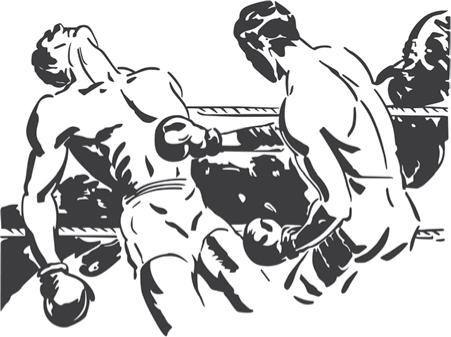
The bigger they are, the harder they fall is a phrase that originates from the world of boxing. Bob Fitzsimmons was a British heavyweight boxer and he coined the phrase. In 1900 he fought Ed Dunkhorst in Brooklyn, New York. Known as “The Human Freight Car,” Dunkhorst was a giant of a man and weighed in at nearly 400 pounds for the bout. Fitzsimmons was not all that big for a heavyweight and when he walked into the ring and saw his opponent, all he could say was, “the bigger they are, the harder they fall.” Fitzsimmons won the fight by knockout.
![]()
MEANING: a sense of inferiority or a perceived grievance
IN CONTEXT: Tracey had been passed over for another promotion and had a real chip on her shoulder about it.
Chip on your shoulder began in the schoolyards of America in the 19th century. If two boys argued and one wanted to challenge the other to a fight, he would place an actual chip of wood (usually a piece of bark or a small stick) on his shoulder and dare the other to knock it off. If the challenge was taken up and the chip was knocked off, a proper fight would ensue. This practice of spoiling for a fight by having a chip on your shoulder soon developed into the well-known expression.
![]()
MEANING: to lose your nerve or courage
IN CONTEXT: Matt was desperate to ask her out on a date, but he bottled it at the last minute.
To bottle it originates from the days of bare-knuckle boxing in the 19th century. A fighter always had a man in his corner who supplied water and encouragement between rounds to keep the fighter’s energy and spirits up during a bout. This man was known as the “bottleman,” because he carried with him the boxer’s water. Without the bottleman and the necessary water, the fighter was unable to continue. In cases where the fighter was losing, he would sometimes tell his bottleman to sneak away with the water bottle, which would give the fighter an excuse to quit. In these cases, it was said that the fighter had “bottled it.”
![]()
MEANING: take up a challenge; signal an intention to join an enterprise
IN CONTEXT: The investment seemed a little risky, but a few of my friends had put money in so I decided to throw my hat into the ring.
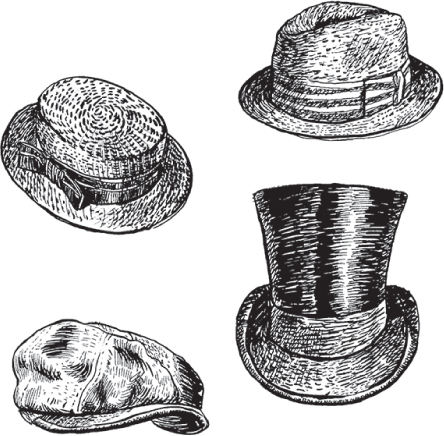
Throw your hat into the ring has its origins with boxing. In the early 1800s, prizefighters would tour the country and box at traveling fairs. They offered to take on all comers and gave the local men a chance to win money if they could last the distance or beat their opponents. Anyone who fancied his chances in a bout against these “professionals” would throw his hat into the ring. The hats were placed in a pile by the referee and then shown to the crowd in turn as an invitation for the owner to come up and fight.
![]()
MEANING: an intense altercation; a free-for-all fight to the end
IN CONTEXT: The Thrilla in Manila between Ali and Frasier became a battle royal.
Battle royal is an expression which originates from the blood sport of cockfighting. A popular pastime among all classes in England since the 12th century, Henry VIII even had a cockpit built at Whitehall Palace. The royal cocks were usually the strongest and best fighting birds, and the most celebrated spectacle was a particular event in which sixteen of the best birds were pitted against each other. They fought until the final eight remaining cocks entered round two. Round three was four birds, and the two victors of that battle would enter the final round. This last round, known as a battle royal, was fought until there was one victor.
![]()
MEANING: to make frequent and casual use of a name, word, or idea
IN CONTEXT: The rumors about Cathy were bandied about at the office all morning.
When something is bandied about it is often repeated from person to person. The phrase originates from the 16th century French game called bander. Bander was a forerunner to tennis and involved hitting a ball to and fro between two opponents. The Irish then invented a new team sport similar to modern-day hockey, where a ball was hit between the players using a bowed stick. It too was called bander, named after the French game. In fact, because of the bowed stick that was used, the term bandy legged developed to refer to someone with bowed legs. Shakespeare then immortalized the term bandy to mean “to and fro” in his 1606 play King Lear.
![]()
MEANING: without a second to spare
IN CONTEXT: The train was running early and we caught it just in the nick of time.
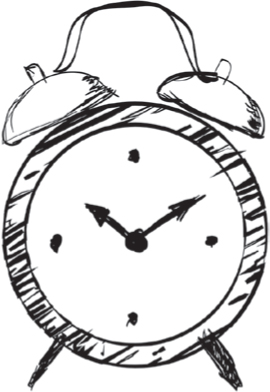
The phrase nick of time began in England during the Middle Ages. At that time, there would usually be a tally man to keep score during team games. He would carry a “tally stick,” and each time a team scored he would carve a small nick (a notch or groove) into the stick. If the winning nick was added just before the end of the match, it was known as the nick in time. The expression later became known as in the nick of time.